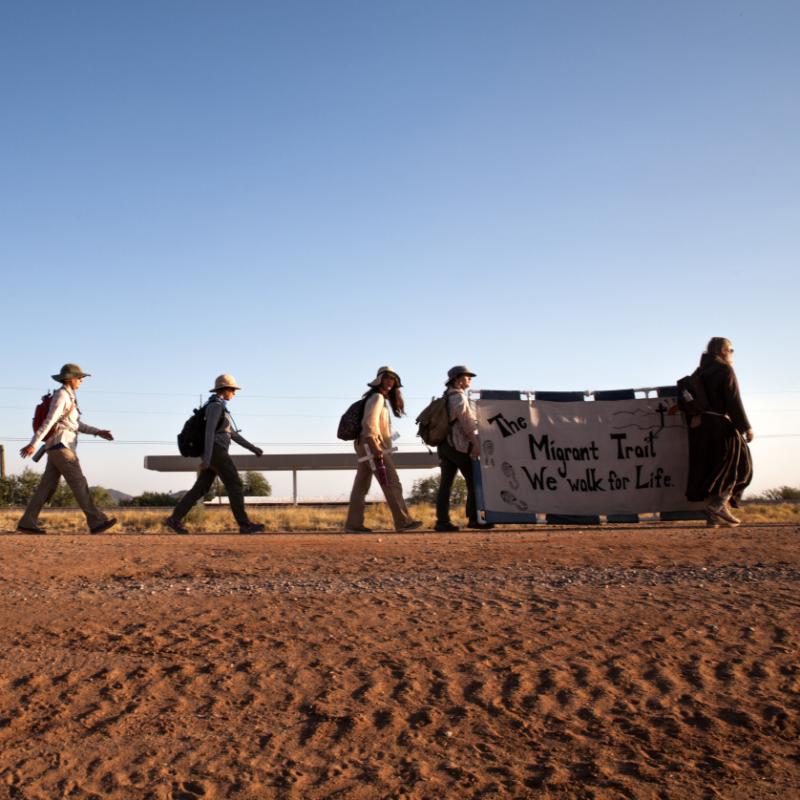Sen. Bob Menendez (NJ) and Rep. Linda Sánchez (CA-38) introduced the U.S. Citizenship Act of 2021 (H.R. 1177), a bicameral piece of legislation that reflects the Biden-Harris administration’s proposed immigration reform policies.
The centerpiece of the legislation is a pathway to citizenship for 11 million undocumented immigrants in the United States.
The centerpiece of the legislation is a pathway to citizenship for 11 million undocumented immigrants in the United States. The bill provides Dreamers, TPS holders, and some farmworkers with an expedited, three-year path to citizenship, making them directly eligible for green cards. All other undocumented immigrants can apply for a temporary legal status, establishing them as a “Lawful Prospective Immigrant” or LPI. This is the start of an eight-year process for immigrants who were present in the U.S. before January 1, 2021. This requirement can be waived by the Secretary of Homeland Security for those deported under the Trump administration who were physically present for at least three years prior to removal (if they meet all other requirements).
The legislation also addresses issues that are fundamental to achieving migration justice and policy reform. The bill:
- Includes provisions of the No Ban Act, a priority for FCNL’s immigration and refugee program. We all witnessed how the travel bans from the previous administration resulted in cruel and inhumane consequences, separating families and unfairly targeting Muslim and African immigrants. This proposal limits overbroad presidential authority regarding discriminatory travel bans.
- Supports asylum seekers and other vulnerable populations by eliminating the one-year deadline for filing asylum claims, reducing asylum application backlogs, increasing protections, and raising the cap for humanitarian visas. This includes visas for victims of criminal activity (U visa) and victims of human trafficking (T visa).
- Replaces the term ‘alien’ in the Immigration and Nationality Act (INA) with ‘noncitizen.’
- Includes a strategy to address certain key factors driving migration from the Northern Triangle Region of Guatemala, Honduras, and El Salvador.
- Expands the Family Case Management Program and Alternatives to Detention.
- Removes many barriers to family-based immigration. The proposal prioritizes keeping families together. It also eliminates discrimination in the immigration system experienced by LGBTQ+ families.
- Expands refugee processing in the Western Hemisphere and allows refugee claims to be managed regionally. Establishes Designated Processing Centers throughout Central America to register and process refugees for resettlement to the U.S. or elsewhere.
- Updates the employment-based immigration system, eliminating per-country caps, increasing the number of immigrant visas for lower-skilled jobs, reducing the employment-based immigrant visa backlog, and more.
- Promotes Immigrant and Refugee Integration and includes new funding to encourage integration and inclusion.
The bill does not do everything we want. It does not end immigration detention, an inhumane and unnecessary mechanism. It does not fully separate immigration consequences from the criminal legal system. However, if passed the U.S. Citizenship Act (H.R. 1177) will move our nation forward toward uniting our communities, powering our economy, and ensuring that immigrant families can finally take the next step to become U.S. citizens.
We are committed to working for a world where dignity and rights are upheld regardless of migration status.
This is long overdue. Most undocumented immigrants have lived in the United States for extended periods of time, and many live in mixed-status families. These changes would allow them to step out of the shadows.
We are committed to working for a world where dignity and rights are upheld regardless of migration status. FCNL looks forward to working with the administration and Congress to continue moving towards our visions for migration justice, as recently outlined in the Quaker Migration Statement.


